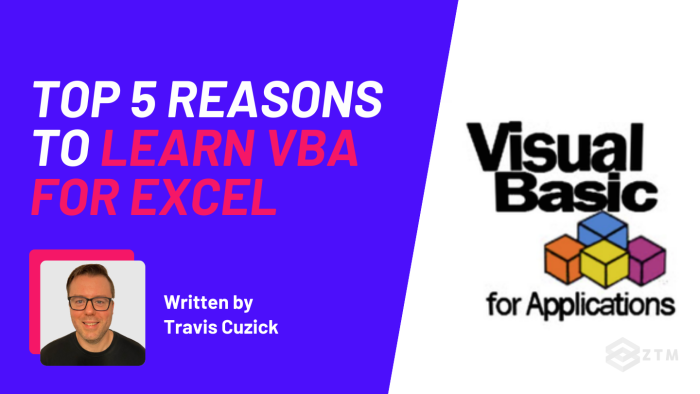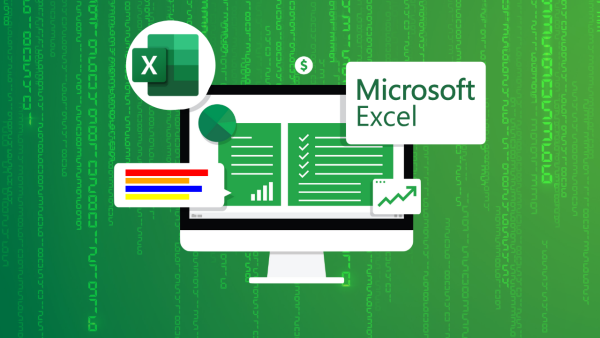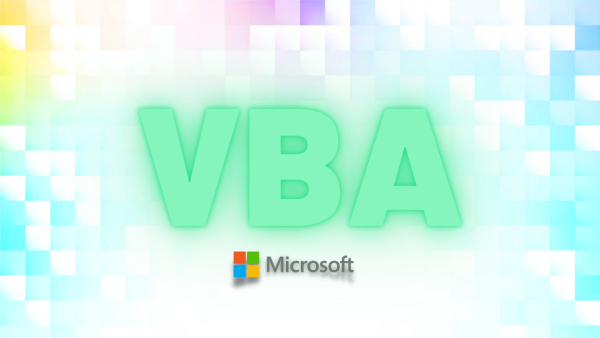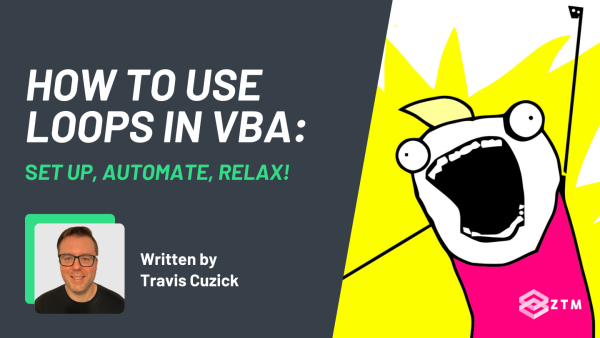Do you spend your days pouring over Excel spreadsheets looking for insights and the story behind the numbers?
Ever wish you could simplify some of your tasks and processes? Maybe automate some of those annoying point, click, drag and highlight tasks that you repeat for hours each week?
You know the ones.
The same tasks that you frustratingly say “There must be an easier way to do this!” but always forget to figure out how to do it?
Well, good news! There’s a tool called VBA or ‘Visual Basics for Applications’ that helps make your data analysis easier and more efficient.
In fact, in today’s article, I'm going to break down my top 5 reasons why you should learn VBA.
Let’s dive in!
Reason #1: VBA is the best way to automate Excel because it’s built into it!
Microsoft Excel is everywhere. You’ll find Excel spreadsheets on the computer screens of decision makers at every level of business and government.

And you know what that means? VBA is everywhere too.
That's because the VBA programming language comes built into Microsoft Excel (and other Microsoft Office applications, like Outlook and Word).
So if you have Excel, you already have VBA. And the same goes for your coworkers who have Excel, meaning they can benefit from any of the VBA solutions that you build too.
You simply press Alt + F11 in any Microsoft tool and as if by magic, VBA appears 😮

Shazam!
It gets better, though. Because VBA is built into Excel, this means that you don’t need a specific machine with VBA downloaded on it for it to work.
Lose your laptop at the airport? No problem! Grab a new machine, open up Excel via cloud and VBA is good to go, with zero additional programs or tools needed 😁
So yes, VBA is everywhere which makes the barriers to entry, usage, and adoption very low. Which is important given how humans are such creatures of habit.
But that’s not the only reason you should learn it…
Reason #2: VBA is powerful
The bottom line is this: Excel is one of the most powerful pieces of software ever developed, and VBA gives you programmatic control over it.
Why care?
People have been predicting the death of Excel for years and years, claiming that XYZ tool is the replacement, but it's still the best tool for the job over 37 years later!
In fact, in a study by BPM, they found that more than 80% of Finance professionals planned to keep using Excel- even after they had purchased other software!
Even when a tool does look like a good replacement, they start to expand and end up evolving into entire platforms and move away from the goal for the original tool.

Trust me on this, the modern business landscape is drowning in data and Excel is arguably the most versatile tool for cleaning, transforming, analyzing, and visualizing that data, helping you to cut the stress and need for multiple tools.
For example
Excel’s Pivot Tables and Charts are among the best-in-class reporting and visualization tools available in any application, while its extensive library of functions allows ordinary users to apply sophisticated calculations to their data.

And with VBA, you can apply all the constructs of a modern programming language, such as:
- Conditional logic
- Loops
- Arrays
- Modular programming, etc

(You can read how to use loops for VBA here)
All these features are built right into Excel. It's like putting one of the world's most powerful analytical tools on steroids.

So what could you use these features for?
Anything from:
- applications that automate mundane tasks around the office (formatting or transforming data, creating or updating reports, etc)
- to developing libraries of custom worksheet functions that work just like Excel’s built-in functions
- to form-driven apps that guide less-skilled Excel users through complex processes!
Not bad right?
Reason #3: Excel will teach you VBA
If you've never programmed before then the process of learning your first programming language may seem daunting.
The good news?
Excel has built-in processes and tools to help teach you how to use VBA, right there inside of Excel.
For example
Excel’s macro recorder allows you to transcribe your actions in the spreadsheet into VBA code, so you can later play those steps back to automate redundant tasks or processes.

But crucially, you can also inspect - and even tweak and modify - the VBA code that was generated! This is a fantastic way to get real programming experience, and gradually acquire that all-important intuition for logic and syntax.

Recording macros, inspecting the code, then either modifying it or borrowing chunks of it for use in other macros, is one of the fastest and most effective ways to learn to program.
Reason #4: VBA lets you sidestep the red tape
Unless you're already a full-fledged developer and working in a dev department, getting popular programming languages like Python or R installed on your work machine may not be as trivial a matter as you think.
Why?
Because corporate IT departments typically don't allow installations of software unless there’s a specific business need, meaning you get trapped behind red tape and multiple decision makers.

This means that if you're someone who aspires to be a developer or data analyst but isn't quite there yet, you may be relegated to building personal applications outside of work to develop your programming skills.
While there's certainly nothing wrong with this, and it's still a great way to learn, there's just no substitute for building real working solutions for real customers as a way to develop as a programmer.
But remember, because VBA comes installed in Excel as standard, you don’t need permission to install it as it’s already there.
Huzzah for sidestepping red tape and meetings!

Reason #5: VBA lets you start solving problems today
That brings us to the last reason you should learn VBA this year, which is the fact that you don't have to wait for some grand idea or VC funding to build something useful!
All you need to do is find a task in your own life or job that can be improved and then build for that.
You don’t need to reinvent the wheel. You can make it smoother, lighter, etc.
Depending on where you work, and the parameters of your current role, your department or team may not have an immediate need for something as exotic as a mobile app, a web app, or a machine learning model, but there's an excellent chance that you could improve their day to day actions and processes.
Top tip:
Learning to solve your own or your workmate's problems is a great stepping stone to learning more in-depth coding and getting buy-in from management to pay you to learn to code!
That’s what Duaij did! He helped reduce a work task from 1 hour per day to just 5 minutes, before finally automating the entire thing and cutting out the need for the user to do anything!
He simply found a problem at his job, solved it, and then got promoted to a Developer role, got paid to learn, and doubled his income!
Pretty cool right?
This is the beauty of learning VBA. It's a great stepping point to becoming entrepreneurial within your role.
Instead of sitting back and waiting for that day when the right software is installed on your computer, or you finally have a role in which coding is part of your job, you can start scanning your office (and personal life) today for problems to solve with VBA.

So what are you waiting for? Take note of any processes in your office that involve Excel and analyze them for inefficiencies, redundancies, or a general lack of user-friendliness. Then use VBA, in tandem with Excel’s built-in features, to build a superior solution.
Easy!
Your coworkers (and boss) will love you for it, you'll get noticed, and it just might be a stepping stone to the next level of your career.

This is how many Data Analysts, Business Intelligence Developers, and even Application Developers got their start.
🔥 So What Are You Waiting For? Start Learning VBA For Excel Today!
Boom! 5 reasons out of the hundreds why you should learn VBA for Excel.
- It’s easy to use and helps you learn as you go
- It’s everywhere
- It cuts red tape
- It's powerful in its simplicity
- It can help give you a kickstart and be that first step to becoming a developer (if that's a goal of yours)
Not everyone can start their career as a developer or analyst in a full-time developer or analyst role, and that’s ok.
Sometimes you have to do the kinds of things you would do as part of your dream job, to get that dream job.
When you do that, you're also showing that you're the type of person who takes initiative which companies love. Building useful things in VBA is one of the best and quickest ways to do that, while still working in your current role.
So stop reading, look around your office, and find a problem to solve with VBA - it might just launch the next phase of your career. Good luck, and happy coding!
And if you want to fast-track your learning process, check out my Excel Bootcamp and VBA Programming course!








